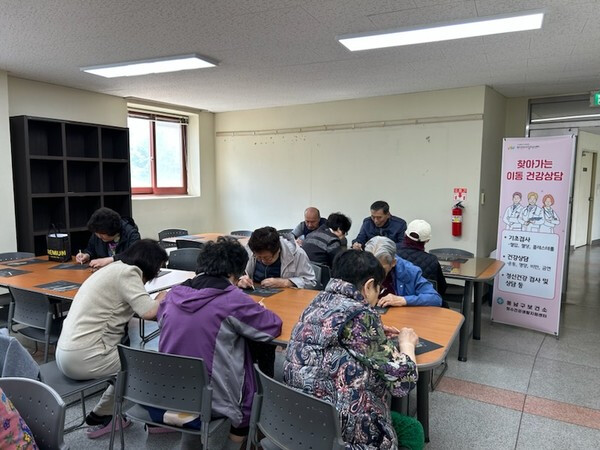
CHEONAN, SOUTH KOREA – The Cheonan City Public Health Center, through its Cheongsu Health and Wellness Support Center, has initiated a specialized health program aimed at addressing the distinct health needs of elderly Sakhalin Korean returnees residing in the Cheongsu district. The program, aptly named "Connecting Health, Togetherness," underscores the city's commitment to supporting this vulnerable population, many of whom grapple with chronic illnesses and geriatric depression stemming from their unique historical circumstances and advanced age.
The Cheongsu area is home to 64 Sakhalin Koreans across 42 households. These individuals are descendants of Koreans who were forcibly relocated to the Soviet island of Sakhalin during the Japanese colonial era, primarily to work in coal mines. Following decades of displacement and often arduous living conditions, many have finally returned to their ancestral homeland in South Korea in their later years. However, their journey has been marked by significant challenges, including language barriers, cultural adjustment, and, notably, a high prevalence of age-related health issues and mental health concerns.
Recognizing the specific vulnerabilities of this community, the Cheongsu Health and Wellness Support Center has launched a proactive, monthly outreach program. This mobile health initiative directly reaches the homes of the returnees, providing essential healthcare services and education. To date, the program has engaged 30 individuals from 23 households, focusing on critical areas such as chronic disease management, which is particularly relevant given the higher rates of conditions like hypertension, diabetes, and cardiovascular diseases observed in this population. Furthermore, the program incorporates vital dementia prevention management and education on preventing degenerative diseases, acknowledging the advanced age of the beneficiaries.
Beyond addressing physical health, the "Connecting Health, Togetherness" program recognizes the significant emotional and psychological toll of displacement and the challenges of adapting to a new environment in old age. To foster mental well-being and social connection, the Center plans to introduce therapeutic activities such as art therapy and horticultural therapy, facilitated by professional instructors. These holistic approaches aim to provide emotional support, reduce feelings of isolation, and enhance overall quality of life.
Lee Hyun-ki, the head of the Seobuk-gu Public Health Center, emphasized the program's significance, stating, "We sincerely hope that this initiative will offer tangible benefits to the physical and mental health of the Sakhalin Korean elders." He further affirmed the city's ongoing commitment, adding, "We will continue to dedicate our efforts to ensure they can experience healthy and fulfilling later years in their homeland."
This initiative by Cheonan City reflects a growing awareness in South Korea of the specific needs of Sakhalin Korean returnees. Studies and reports have highlighted the complex interplay of factors contributing to their health challenges, including the trauma of forced migration, separation from family, exposure to harsh working conditions in Sakhalin, and the difficulties of repatriation in their advanced years. Many also face financial insecurity and limited access to culturally sensitive healthcare services.
Organizations and local governments across South Korea have been gradually implementing measures to support this community. These efforts range from providing language assistance and cultural orientation programs to offering specialized healthcare and social welfare services. The Cheonan City program stands out as a targeted and proactive approach to directly address the health concerns of these elderly residents within their community.
The success of the "Connecting Health, Togetherness" program could serve as a model for other regions in South Korea with Sakhalin Korean populations. By providing culturally sensitive and accessible healthcare, coupled with psychosocial support, local authorities can play a crucial role in improving the well-being and integration of these long-displaced individuals as they finally settle in their ancestral home. The initiative in Cheonan underscores the importance of recognizing the unique histories and health vulnerabilities of this community and tailoring support services accordingly, ensuring they can live their remaining years with dignity and improved health.
[Copyright (c) Global Economic Times. All Rights Reserved.]






























